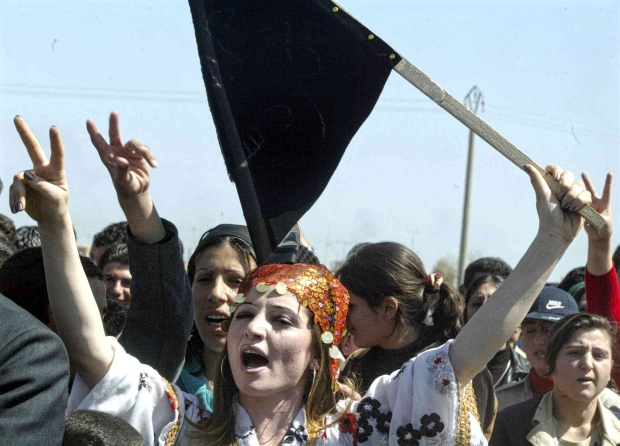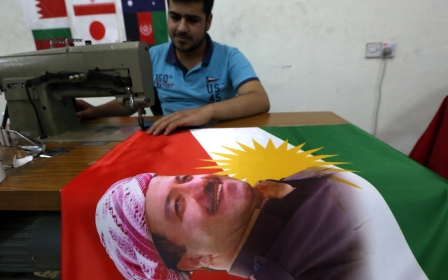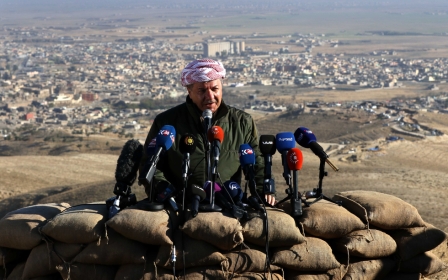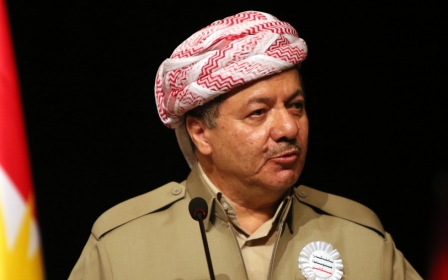Kurdish vote on independence: How it could anger Turkey
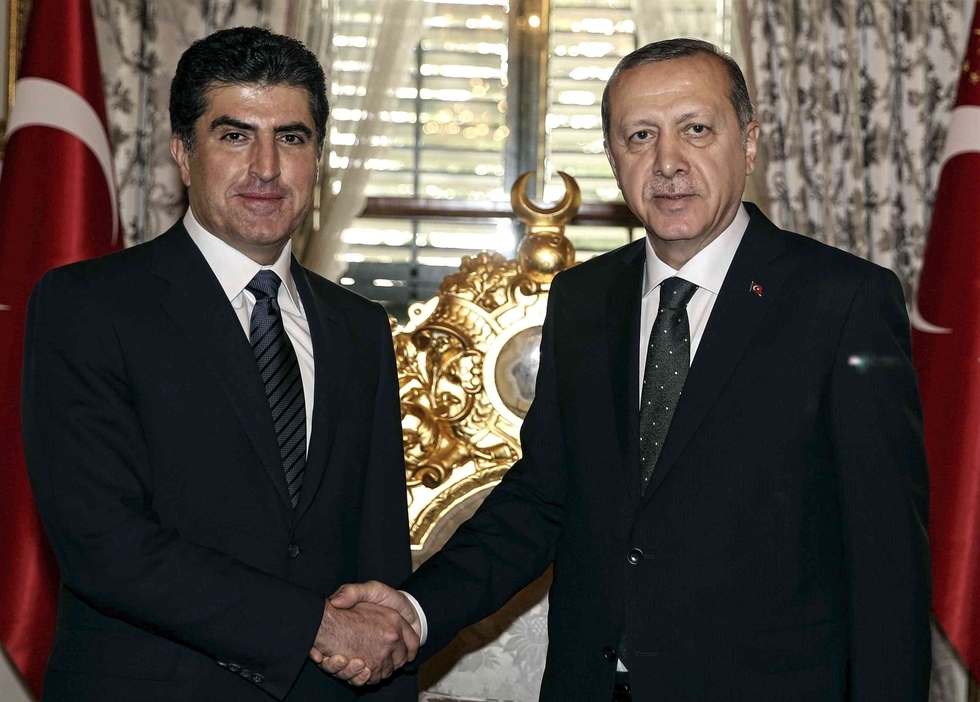
The Kurdish Regional Government’s proposed referendum on independence from Iraq is still a month and a half away. But as 25 September edges closer, the signs of uneasiness in Turkey, its powerful northern neighbour, become more numerous.
The official position of Turkey’s foreign ministry is that the vote will “damage regional stability”. But some Turkish politicians are putting it much more strongly. Mehmet Gunal, deputy chairman of the Nationalist Movement Party, a close ally of the ruling AKP, has already raised the possibility of some kind of armed intervention by Turkey, along the lines of Operation Euphrates Shield, its incursion into Syria which began a year ago.
"We should do the same thing for Mosul and Kirkuk, for Bashiqa camp, also in Tal Afar," Gunal says, adding that he believes that the 1926 treaty, which established the frontiers of modern Iraq, gives it the legal right to do so.
President Recep Tayyip Erdogan has declared his opposition to the referendum, and it seems clear that this is unlikely to change.
How the KRG became partner to Turkey
It’s not difficult to see why Ankara might be very alarmed at the prospect of a drift towards separatism in the KRG and the possible formal break-up of its neighbour.
Although Ankara has many areas of common interest with the Kurds of northern Iraq, whose main route to the outside world is through Turkey, its main concern is always with territorial integrity - and not all its own.
For many decades Turkey, with its own large ethnic Kurdish population, has been alarmed at the growth of the Kurdish movement in northern Iraq.
But during the last decade, the de facto autonomous Kurdish statelet there has functioned as a close economic and political partner, even ally, of Turkey, with President Massoud Barzani a frequent and welcome guest in Ankara. In November 2013, Barzani and Erdogan, then Turkey's prime minister, even met in Diyarbakir and made public speeches together.
The KRG’s purpose as an acceptable alternative for Turkey’s Kurds to the radical militancy of the PKK would probably end
That is something that, even if working relations continue, a post-independence Kurdish Iraqi government would not be permitted to do.
The KRG’s purpose as a friendly and acceptable role model and alternative for Turkey’s Kurds to the radical militancy of the PKK (Kurdistan Workers' Party) would probably end.
That aside, the economic and commercial links between Turkey and the KRG are so strong that they have been described as a kind of ‘commonwealth’. The KRG is consistently one of the largest markets for Turkish exports and it is linked to Turkey by the 970km Kirkuk-Iskenderun pipeline, completed in the late 1970s. Five years ago, the KRG also constructed a spur carrying crude oil from Kurdish oil fields.
Since the KRG exports almost nothing else to Turkey, the pipeline gives Turkey potential leverage if there ever is a dispute, although Ankara does not normally use energy supplies to resolve political disputes and might be unwilling to do so here.
The Erbil government has also not done anything to discourage Turkish air strikes against the PKK HQ on Mount Qandil, close to the KRG frontier with Iran, since they began in July 2015.
Why Turkey wants a say
But there are still two points of friction.
The first is the rights of Iraq’s Turkmen minority. Concentrated around Kirkuk, their numbers are variously estimated at 600,000 by Kurds, but some outside observers believe that there could be two million Turkmen (though for several generations many Turkmens have been under strong pressure to assimilate as either Arabs or Kurds).
Ankara is less emotionally concerned with the Iraqi Turkmens than it used to be as more than half of them are Shia.
In any independence settlement, the future of Kirkuk would be one of the biggest sticking points
But the Turkish government is, however, concerned about alleged attempts by the KRG to reduce the Turkmen component in and around Kirkuk, the oil-rich city which is claimed by both the KRG and Baghdad.
It was held by the Iraqi government until three years ago when it was seized by KRG forces. In any independence settlement, the future of Kirkuk would be one of the biggest sticking points, with Turkey arguing that the presence of the Turkmen gives it a direct say in the dispute.
But such a conflict looks a long way off as things stand. Although it is almost certain that there will be a resounding yes vote in the referendum (despite one KRG broadcasting mogul having promised to vote against independence), the poll is non-binding and will not automatically result in any immediate action.
The KRG will probably hope to allay Turkish anxieties by carrying on with business as usual, and presenting the referendum as yet another of its tiny steps towards eventual independence which have, as yet, come nowhere near reaching their goal.
So Barzani probably hopes to gain kudos and charisma from allowing the national will of his people to assert itself but intends that, once the yes vote is in the bag, the status quo will, in fact, be unchanged for a longish period.
Despite the common economic interests of Ankara and Erbil, this could be a miscalculation.
From Ankara’s point of view, matters cannot rest there. Turkey has a powerful tradition, stretching back to the 19th century, of not allowing secession and autonomy among minority ethnicities in its neighbours. In 2017, the most burning issue on its security agenda is the existence of the self-declared autonomous Syrian Kurdish cantons along much of its frontier with Syria.
Unlike the KRG, the Syrian Kurdish leaders have very close ties with the PKK. Erdogan has said many times that Turkey will not allow a secessionist state to come into being in Syria, especially among its Kurds.
The KRG referendum may therefore be the prelude to a much more difficult relationship between Turkey and the Iraqi Kurds as they put their only significant regional friendship – and their channels of communication with the outside world – at risk.
- David Barchard has worked in Turkey as a journalist, consultant and university teacher. He writes regularly on Turkish society, politics and history, and is currently finishing a book on the Ottoman Empire in the 19th century.
The views expressed in this article belong to the author and do not necessarily reflect the editorial policy of Middle East Eye.
Photo: Turkish President Recep Tayyip Erdogan shaking hand with Prime Minister Nechirvan Barzani (left) of Iraq's Kurdish Regional Government (KRG), in Istanbul in November 2016 (handout/AFP/Turkish presidency)
New MEE newsletter: Jerusalem Dispatch
Sign up to get the latest insights and analysis on Israel-Palestine, alongside Turkey Unpacked and other MEE newsletters
Middle East Eye delivers independent and unrivalled coverage and analysis of the Middle East, North Africa and beyond. To learn more about republishing this content and the associated fees, please fill out this form. More about MEE can be found here.




